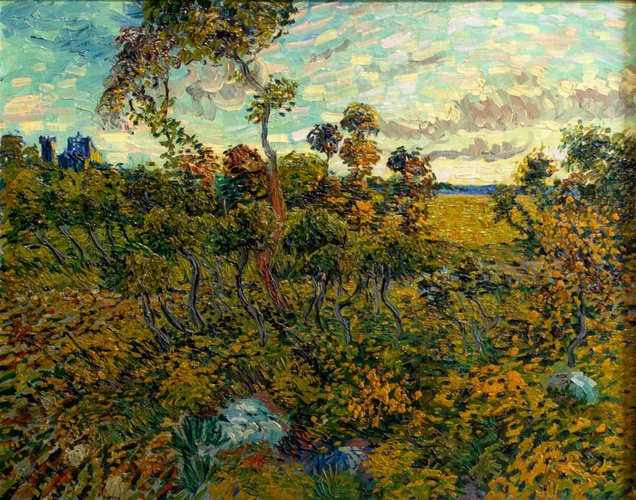Life can be a funny old thing, really. Sometimes stories, like busses, seem like they're hiding round the corner, only to come along in pairs. Last week, for me, it was Van Gogh.

In case you missed it, a new Van Gogh painting was discovered this month, leading to worldwide media coverage. Among the facts and figures thrown about in the endless stream of reports, I learned a lot. There was the number of visitors each year to the Van Gogh Museum (more than 1,600,000); the last time an original was discovered (1928 for a full-size canvas); the time it's taken to verify this new piece (over two years); and, perhaps most interesting, the number of paintings Van Gogh sold in his lifetime: one.
The second of this week’s Van Gogh stories involves an old acquaintance of mine who made contact recently, out of the blue, and reminded me of a specific night we spent, years ago now, in Tokyo. Did I remember, he asked, how we wandered around the mega-city, finding our way into bars, and then finding our way into the Seiji Togo Memorial Yasuda Kasai Museum of Art, where (one of) Van Gogh's The Sunflowers was on display? It all came back to me, there and then. It was a beautiful, truly breath-taking piece of work, vivid and surprisingly lumpy.
Since his death, Van Gogh's become the archetypal tragic artist. It's a story worthy of a novel; the genius, the limitations he faced, and that whole thing with the ear...
But what can we learn from this? That you never really know how things are going to turn out? Sure. That stories and art are never really finished? True, I think. How about this, though: that keeping going and creating for its sake is still the most important thing.
Van Gogh was not successful, but he kept painting in the face of the world's dull apathy. That's something to hold on to. In the world of modern publishing, where writers have platforms, Twitter, and world tours, where debut novelists have limited advances and sometimes meager marketing budgets, it can seem so confusing, so pointless, to keep trying. If you can't get your book out there, why bother? Why spend so much time writing?
It has to be because you love it, in the end. Being published and making money from writing is a fine goal, but it can't be the be all and end all. Write a book. Does it get rejected? Keep writing. Does your family tell you to get a proper job? Well, maybe you should - but keep writing. The most successful writers of recent years all wrote without knowing what was coming, but they kept at it. JK Rowling's the classic case, nowadays. Her Harvard University commencement address is worth reading. It's called "The Fringe Benefits of Failure, and the Importance of Imagination.”
I suppose this post is designed to help writers who are feeling what might be called the pressure of apathy. Sometimes it seems like the world, for all its noise and rush and endless different ways to share sound bites, has rather uncaring eyes and no time for your book. Those are the moments when it's most important to make sure you keep writing things down. History might remember you. History might forget you. You can't ever know. The one thing that's certain, though, is that no book ever made it that didn't get written first.
Van Gogh never knew his success, but millions of other did. Keep on, writer, and tell your story.
To find out more about Simon and his forthcoming novel, EREN, please visit his website.
Hi Simon, thanks for this great post. I was thinking something similar to this just the other day. I completely agree that writing has to be something you love. You can't do it just because you want to get published, though as you say it would be a bonus. Part of the reason I love writing are all the mini achievement and milestones you reach: coming up with a great plot twist, developing a character etc. And if writing is something you love then spending time doing it shouldn't be a chore. Some people like watching television or playing sports. I see writing as an equivalent to all those other hobbies that people have out there.